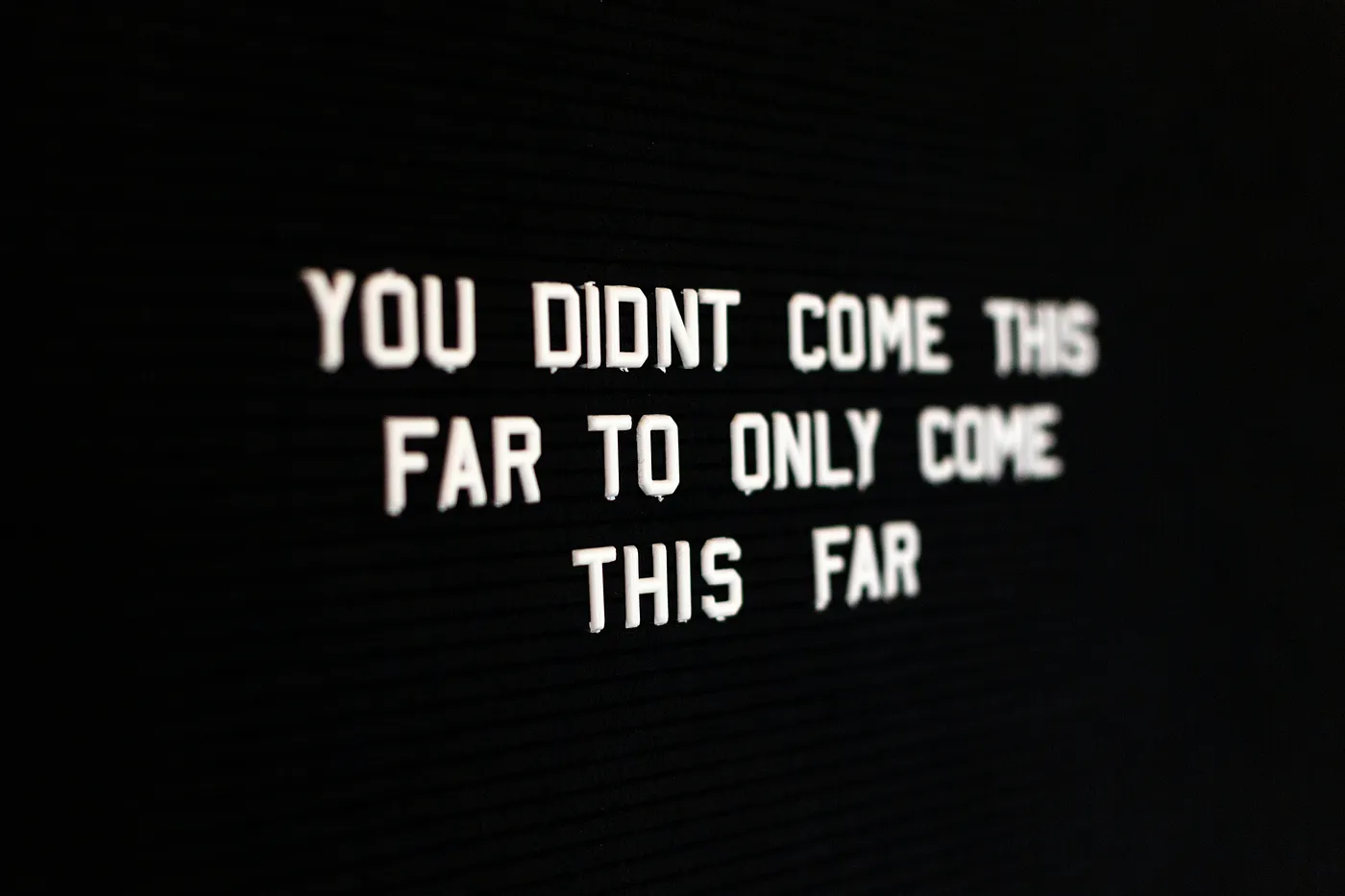The Psychology of Change
•

Dipo Ayoola
Product Designer
Listen to this article
This post was initially published on my Medium profile on the 18th of April, 2023.
In this article, we’re going to explore the topic of change. We’ll discuss what motivates us to change, what might be holding us back, and ways to develop a growth mindset.
Whether you’re new to this topic or just looking to deepen your understanding, this article will offer insights and tips that can help you make positive changes in your life.
Change is something we’ve heard all too often over the years as we’ve grown. Change is bound to happen to everyone, one way or another.
But what is change, really?
Change is an inevitable part of life that affects humans, individuals, or even society at large. It often challenges the way we think and presents opportunities for us to develop.In itself, change is neither good nor bad, but it can be one or the other depending on how it affects the party in question.
That is why, when you hear the word change, it is advisable to approach it with as little bias as possible and make efforts to understand how it will affect you.
As much as “change” is a common term, people can still be unwilling to experience it for many reasons.
Different elements can influence an individual's readiness to make changes.
Let’s explore some of them.
Motivators of Change
1. Desire to fulfil a need/goal
When we identify a significant gap between where we are and where we want to be, we are likely to try our best to bridge that divide.

For example, it may motivate someone who genuinely wants to lose weight to change their habits, diet, and exercise regimen to achieve that goal.
Or it may motivate a student who wants to make better grades to change their study habits to achieve that change.
2. Expectations from society
Peer pressure is when you do something because you want to feel accepted and valued by your friends.
I grew up only hearing about the negative effects of peer pressure. But I have since realised that peer influence can be positive or negative.
When an individual perceives that their habits do not align with those around them, it may motivate them to change in order to fit in.
For example, someone who lives with track athletes may be motivated to grab a pair of running shoes one morning and tag along.
Despite how beneficial change can be, several things can hold us back.
Barriers to Change
1. Fear
With change, there are a lot of uncertainties. Sometimes, you cannot accurately gauge how the change will affect you until it actually does.

Change comes with a degree of risk that can trigger anxiety.
For instance, someone may be afraid to leave a city they’ve lived in for many years, even though they feel like their destination may prove to be better for their future.
Similarly, someone may be reluctant to leave a job that they dislike, even though they feel like doing so might help them achieve their career goals.
2. Comfort zone
This is essentially a range of emotions and experiences that we are familiar with. We feel safe in our comfort zone.

Being in our comfort zone typically involves the least amount of risk. While it might reduce stress, it can also limit personal growth and prevent us from taking on new challenges.
People stay in their comfort zones for different reasons, such as fear of failure, fear of new challenges, fear of the unknown, or fear of unfamiliar situations or experiences.
We have become so accustomed to this range of emotions and experiences. Stepping outside of our comfort zone might expose us to new challenges that we’re not prepared for.
Getting into unfamiliar situations might cause our brains to perceive them as threats, which can trigger feelings of anxiety and discomfort.
To overcome this urge to stay within our comfort zones, here are some things we can do:
Challenge ourselves with new experiences.
Set goals that require you to step out more
Develop a growth mindset.
What is a growth mindset?
A mindset that allows you to see failure as a learning and growth opportunity. That way, it is no longer something to dread, but something to embrace.
3. Cognitive Dissonance
This is essentially a disconnect between what we believe and what we do.
For instance, a long-time smoker who knows smoking is bad for their health may experience cognitive dissonance.
He believes this to be true, but there is a disconnect with what he does.
This disconnect can often cause discomfort or tension.

(A man conflicted between two choices)
A second example is a person who supports a political candidate involved in a scandal. They may experience cognitive dissonance because their behaviour (supporting the candidate) conflicts with their beliefs.
Their belief is that honesty and integrity are important qualities in a leader.T
o reduce or overcome this dissonance, the individual might either withdraw their support, alter their actions to match their current beliefs, or rationalise their behaviour by mentally minimising the issue.
Another example is a person in an abusive relationship. Their actions (staying in the relationship) conflict with their belief that they deserve to be treated better and with respect.
To reconcile this cognitive dissonance, the person may either:
Leave the relationship so that their actions and behaviours match their current beliefs.
Rationalise their behaviour by blaming themselves for the abuse or mentally de-emphasising the severity of that abuse.
To overcome these barriers to change, it is essential to:
Become self-aware of the existence of those barriers.
Be open to new ideas, fears, and experiences.
Acknowledge our fears and limiting beliefs.
Challenge our prejudices with evidence-based reasoning.
Seek out support from people who share similar values.
Break down the change into smaller, more attainable steps.

These help to get rid of the overwhelming feeling and also help us develop habits that are aligned with our goals.
Conclusion
Change is an inevitable part of life, and we all experience it at some point. While it may be challenging, it’s essential to embrace change as an opportunity for personal growth and development.
Understanding what motivates us to change, and what holds us back can help us overcome barriers.
Remember to seek support, challenge your comfort zone, and focus on what you can control. With the right mindset and support, you can navigate change and emerge stronger and more resilient than before.
Just like a caterpillar transforms into a beautiful butterfly, you too can spread your wings, embrace change, and let yourself soar to new heights! 🚀


